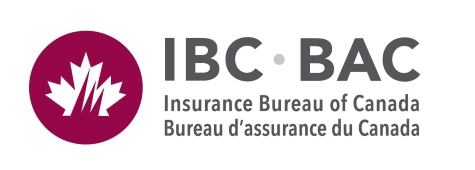Canadian police to learn more about staged collisions
IBC and CPKN sponsor initiative aimed at disrupting the criminal network and defending against organized insurance scams
TORONTO, Feb. 1, 2012 /CNW/ - Insurance Bureau of Canada (IBC) understands the frustration of consumers in Ontario who face the highest auto insurance premiums in the country.
For the remainder of 2012, IBC and the Canadian Police Knowledge Network (CPKN) are sponsoring free access for Canadian frontline police officers to the Identifying Staged Collisions online training course. This will help police across Canada learn more about the tactics of highly sophisticated and widespread auto fraud rings and associated service supplier fraud.
"Insurance fraud is a serious problem right across Canada and we all pay for it in the form of increased premiums. In terms of staged collisions, at times, innocent drivers are drawn into these dangerous situations and we hope this initiative will help police deal with the crime," says Rick Dubin, Vice-President, Investigative Services, IBC. "The more informed police officers are on this issue, the more we can disrupt and disable these types of criminal operations."
Staged collisions, where accidents are orchestrated in order to collect hefty insurance payouts, are becoming increasingly common in Canada's urban centres. These activities not only put public safety at risk but also contribute to skyrocketing insurance premiums for Canadians.
Insurance fraud is often linked to organized crime, the proceeds of which are believed to fund other illegal activities within and beyond Canadian borders.
Ontario's insurance industry, which has been hit the hardest, has initiated measures to counteract auto-related fraud. In addition to recent reforms that have been put into place by the Ontario government to tighten auto insurance loopholes, IBC partnered with York Regional Police to develop online training to educate frontline officers on how to identify and investigate staged collisions. Identifying Staged Collisions is a 45-minute online course that uses videos to illustrate common types of staged collision scenarios and provides information on the various signs, indicators and behaviours that may characterize a staged collision. It also describes techniques to properly investigate suspected incidents that have links to service supplier fraud from towers to medical clinics.
"More and more, our officers are called out to suspect collision scenes," says Sergeant Tony Cummins, York Regional Police Training and Education Bureau. "In cooperation with IBC experts, we've developed this course to address a growing problem in our region. But it also provides practical information that any responding officer, in any part of the country, can use to recognize and investigate a staged collision."
"This course is just one line of defence against a litany of organized insurance scams," adds Dubin. "But we believe that making it accessible to a national police audience will significantly improve the detection and conviction of fraudsters."
"These types of partnerships lend incredible value to CPKN and the Canadian police sector," says Sandy Sweet, President of CPKN. "By taking advantage these types of learning opportunities, police officers gain knowledge on topical issues, police services save on training costs, and Canadians in general benefit from a more informed policing sector."
About Insurance Bureau of Canada
Insurance Bureau of Canada is the national industry association representing Canada's home, car and business insurers. Its member companies represent 90% of the private property and casualty (P&C) insurance market in Canada. The P&C insurance industry employs over 114,000 Canadians, pays more than $7 billion in taxes to the federal, provincial and municipal governments, and has a total premium base of $40 billion.
To view media releases and information, visit the Media Centre of IBC's website at www.ibc.ca.
Erika Bennett at 416-362-2031 ext. 4312.

Share this article